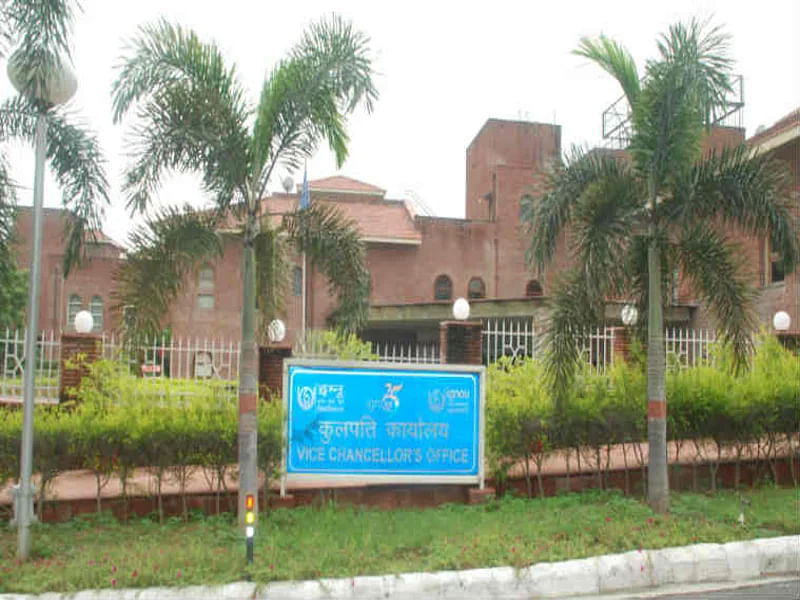MBA Banking and Finance Syllabus and Subjects

MBA Banking and Finance syllabus is divided into core and elective subjects that are tailored to provide a strong foundation in banking, accounts, and finance. The MBA Banking and Finance subjects include some core topics like investment analysis and portfolio management, financial modeling, banking operations and regulations, financial markets and instruments, etc.
The MBA in Banking and Finance course will teach the aspirant to attain technical and behavioral skills in the banking and finance fields. This, in turn, helps secure job opportunities such as Banking Manager, Bank Director, Business Risk Analyst, etc. in the private or public sectors.
Table of Contents
Semester Wise MBA Banking and Finance Syllabus
The MBA Banking and Finance syllabus includes financial accounting, mergers and acquisitions, risk management, and many more subjects that will provide the students with the required skills concerning banking and finance. Semester-wise MBA in Banking and Finance subjects are listed below:
1st Year MBA Banking and Finance Syllabus
The syllabus for the MBA in Banking and Finance in the first year focuses on the evolution of the banking and financial industries, including operations, marketing, and strategies. The table below shows the MBA Finance and Banking syllabus for the first year.
| Semester I | Semester II |
| Management Theory and Practice | Essentials of HRM |
| Quantitative Techniques and Management | Business Research Methods |
| Accounting and Finance for Managers | Financial Institutions and Services |
| Marketing Management | Business Analytics |
| Organizational Behavior | Strategic Management |
| Corporate Communication | Excel for Managers |
| Financial Accounting and Analysis | Operations Management |
2nd Year MBA Banking and Finance Syllabus
The MBA in Banking and Finance syllabus in the second year focuses on understanding advanced topics like corporate finance, mergers, and the financial markets. The following table displays the MBA Banking and Finance syllabus for the second year.
| Semester III | Semester IV |
| Cost and Management Accounting | International Banking and Foreign Exchange |
| Security Analysis and Portfolio Management | Entrepreneurship Development |
| Management of Banking and Insurance Companies | Corporate Tax Planning |
| Retail Banking | Commercial Banking and the Role of RBI |
| Business Valuation | Mutual Fund Management |
| Banking and Insurance Marketing | Project Presentation/ Dissertation |
Also, Read: Top Reasons to Pursue an MBA
MBA In Banking and Finance Subjects
The MBA in Banking and Finance subjects cover topics like Accounting, Banking Systems, Financial Services, and Tax Planning. These subjects are divided into two categories: core and elective papers. Below is the MBA Banking and Finance subjects list.
Core MBA in Banking and Finance Subjects
The MBA Banking and Finance course covers the following core subjects.
- Accounting for Management
- Commercial Banking and the Role of RBI
- Financial Institutions and Services
- Insurance and Risk Management
- Treasury Management in Banking
- Fundamentals of Financial Modeling
Elective MBA in Banking and Finance Subjects
The MBA in Banking and Finance provides elective subjects, which are listed below.
- Operations Management
- E-Business
- Central Banking
- Human Capital in Bank Management
- Cultural Management and Rural Innovation projects
- Microfinance's Role in India
- Digital Governance
- Financial Engineering and Analytics
MBA Banking and Finance Subjects In Detail
The MBA Banking and Finance subjects cover a wide range of topics that focus on the business aspect of banking services and finance. Listed in the table are Banking and Finance subjects in detail:
| MBA Banking and Finance Subjects | Topics |
| Accounting for Management | Measuring and Reporting, Management Accounting, Analyzing and Interpreting Financial Statements, and Cost Accounting |
| Business Research Method | Measurement and Data Collection, Data Analysis I, Data Analysis II, Report Writing. |
| Managerial Economics | Supply meaning and determinants, Market structure, Profit, and National Income |
| Banking and Insurance Marketing | The concept of Banking Marketing and insurance marketing, New Product Development Process, Promotion Mix |
| Commercial Banking and the Role of RBI | Structure of the Indian Financial System, Business environment of Commercial Banks, Various forms of financing methods under non-fund based limits, Bank guarantees, and letters of credit. |
College Wise MBA Banking and Finance Syllabus
The MBA in Banking and Finance syllabus differs based on the college curriculum and program objectives. Students, in order to have a better understanding of the course, can download the MBA Banking and Finance syllabus PDF from the respective universities' websites. Below is the MBA Banking and Finance syllabus for a few colleges:
Sharda University MBA Banking and Finance Syllabus
Sharda University offers an MBA in Banking and Finance course that gives students global exposure and an understanding of the banking system in the country by partnering with industrial experts from HSBC, Citi Bank, etc.
Given below is the semester-wise MBA in Banking and Finance subjects list for Sharda University:
| Semester I | Semester II |
| Principles of Management | Understanding International Business |
| Business Communication | Fundamentals of HRM |
| Understanding Marketing Management | Research Methodology |
| Managerial Economics | Basics of Financial Management |
| Basics of Financial Analysis and Reporting | Elective-I |
| Fundamentals of Organizational Behavior | Elective-II |
| Semester III | Semester IV |
| Summer Internship | Fundamentals of Strategic Management |
| Business Law and Ethics | Understanding Financial Derivatives |
| Corporate Banking | Fundamentals of Corporate Restructuring |
| Portfolio Management and Security Analysis | Elective-IV |
| Elective-III | Project Report |
| Viva Voce |
Symbiosis School of Banking and Finance MBA in Banking and Finance Syllabus
The MBA in Banking and Finance at Symbiosis School of Banking and Finance consists of 100 credits divided into four semesters and helps students understand the functionality of the BFSI sector. Given below is the semester-wise MBA in Banking and Finance subjects list for SSBF:
| Semester I | Semester II |
| Operation Management: Banking Perspective | Legal Aspects of Banking |
| Economics for Managers | Fundamentals of Financial Modeling |
| Business Statistics | Risk Management |
| Research Methodology | Portfolio Management and Security Analysis |
| Financial Accounting | Fundamentals of Credit Management |
| Fundamentals of Insurance Management | Fundamentals of Business Analytics |
| Semester III | Semester IV |
| Summer Internship | Blockchain Fundamentals |
| Fundamentals of Behavioral Finance | Basics of Financial Product Design |
| Understanding Technology's Role in Finance | Governance in Corporate and Ethics |
| Fundamentals of Business Valuation | Fundamentals of Taxation |
| Investment Banking and Asset Management | Elective |
| Fundamentals of Consumer Behavior | Project Report/Viva |
MBA in Banking and Finance Projects
The MBA in Banking and Finance course requires candidates to complete projects or dissertations that assess their abilities in resolving current issues in the banking and financial industries. Below are listed a few MBA Banking and Finance project topics:
- Supply Chain Finance Management
- Study Impact of the Money Supply on Economic Growth in India
- Rink Analysis of E-Banking
- Study of Tax Saving Schemes
- Current Trend in GST with Reference to the Real Estate Industry in India
Also, Check: MBA Project Topics
MBA in Banking and Finance Course Structure
The MBA Banking and Finance syllabus course structure consists of core papers that touch on the important aspects of the course, whereas electives in the paper cover skill-based courses for career advancement. The MBA in Banking and Finance course structure is listed below:
- IV Semesters
- Core and Elective subjects
- Seminars
- Case Study
- Project Submission
MBA Banking and Finance Teaching Methodology and Techniques
The banking and finance course subjects are taught using various methods, including traditional lectures and more advanced techniques like integrated learning modules and industrial standard teaching methods. In summary, the teaching methodology comprises:
- Group Projects
- Research Projects
- Workshops
- Internships
- Case Study Based
- Experiential Learning
- Report Presentation
- Industry Readiness
MBA in Banking and Finance Reference Books
The reference books assist students in better comprehending the course objectives and provide supplementary information for improved exam performance. Here are some books you can use as references for the MBA Banking and Finance course:
| Subject | Books | Authors |
| Accounting for Management | Accounting for Management: An Analytical Perspective | Ambrish Gupta |
| Banking and Insurance Marketing | Bank Marketing | Charles W. King and Bruce A. Clapp |
| Operations Management | Introduction to Operation Management | Stevenson |
| Insurance and Risk Management | Banking, Risk and Insurance Management | N.R. Mohan Prakash |
Top MBA in Banking and Finance Colleges
Top Management Entrance Exams
MBA in Banking and Finance Fee Structure
FAQs on MBA in Banking and Finance Syllabus and Subjects
Q: What is MBA in Banking and Finance?
Q: What are the MBA in Banking and Finance subjects?
Q: Does the MBA Banking and Finance syllabus include Math?
Q: What are the books of MBA in banking and finance?
Q: What are the trending MBA in Banking and Finance research project topics?
























